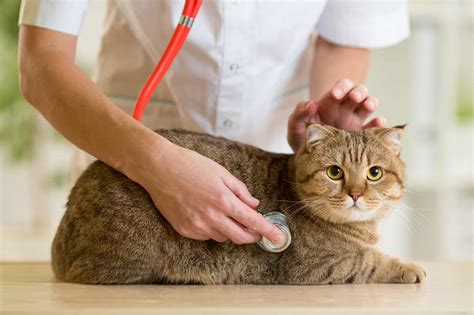Cats are mysterious, independent creatures that have long captured the hearts of humans. However, there are many misconceptions about cat health and wellness that can lead to wrong decisions and harm to our feline friends. In this article, we will debunk some of the most common cat health and wellness myths and provide evidence-based advice to help you keep your cat happy and healthy.

Myth 1: Cats with FIV are contagious to humans.
Truth: Feline immunodeficiency virus (FIV) is spread through the bite of an infected cat, making it highly contagious among cats. However, FIV is species-specific, meaning it cannot infect humans or other animals.
Myth 2: Dry food is better for cats than wet food.
Truth: While both dry and wet food can be part of a healthy feline diet, wet food has several advantages over dry food. Wet food is higher in moisture and can help prevent dehydration and urinary tract issues common in cats. Additionally, wet food is more palatable and provides more essential nutrients compared to dry food.
Myth 3: Grain-free diets are healthier for cats.
Truth: Grain-free diets are not necessarily healthier for cats and can even be harmful. Grain is a source of carbohydrates that provide energy and fiber, which are essential for a balanced diet. Additionally, grain-free diets often contain higher levels of protein and fat to compensate for the lack of grains, which can be dangerous for cats with underlying health conditions, such as kidney disease.
Myth 4: Cats only need annual vet check-ups.
Truth: While annual vet check-ups are an important part of preventive care, cats may need more frequent examinations if they are showing signs of illness or have certain health conditions. Older cats and kittens may also require more frequent check-ups to ensure their health is optimal.
Myth 5: Cats should be vaccinated only for rabies.
Truth: Rabies is not the only vaccine essential for cat health. Core vaccines, such as feline distemper, panleukopenia, and feline herpes virus, are crucial for protecting cats from common and potentially life-threatening diseases.
Myth 6: Cats are obligate carnivores that cannot tolerate carbohydrates.
Truth: While cats have a higher protein requirement than many other animals, they can still digest and benefit from carbohydrates in their diet. However, the type and quantity of carbohydrates in a cat’s diet is important, as excessive consumption of certain carbohydrates can lead to health issues, such as obesity and diabetes.
Myth 7: Spaying and neutering cats is unnecessary.
Truth: Spaying and neutering cats has numerous health benefits, including reducing the risk of various reproductive cancers, urinary tract infections, and behavioral problems. Moreover, spaying and neutering cats helps prevent unwanted litters and contributes to population control.
Myth 8: Cats with indoor and outdoor access are more susceptible to diseases.
Truth: While it is true that indoor and outdoor cats have different health risks, both indoor and outdoor cats can contract diseases. Indoor cats may be exposed to diseases through contact with infected people or animals, while outdoor cats face additional risks from predators and other animals.
Myth 9: Providing your cat with fresh milk is beneficial.
Truth: While kittens require milk from their mothers, adult cats are lactose intolerant and should not be given cow’s milk. The lactose in cow’s milk can cause digestive problems, such as diarrhea and vomiting. Instead, offer your cat water as the primary source of hydration.
Myth 10: Cats prefer cold food.
Truth: Cats have a higher body temperature than humans, making warm food more appealing to them. However, the food should not be too hot, as this can damage the cat’s tongue and mouth.
Additional Tips for Cat Health and Wellness:
- Feed your cat a high-quality cat food formulated to meet their specific needs.
- Provide access to fresh water at all times.
- Regularly brush your cat’s teeth to prevent dental disease.
- Keep your cat active and engaged with toys and playtime.
- Monitor your cat’s behavior and appetite for any changes that may indicate illness.
- Take your cat to the vet for regular check-ups and immunizations.





















